2023 TORCH Awards
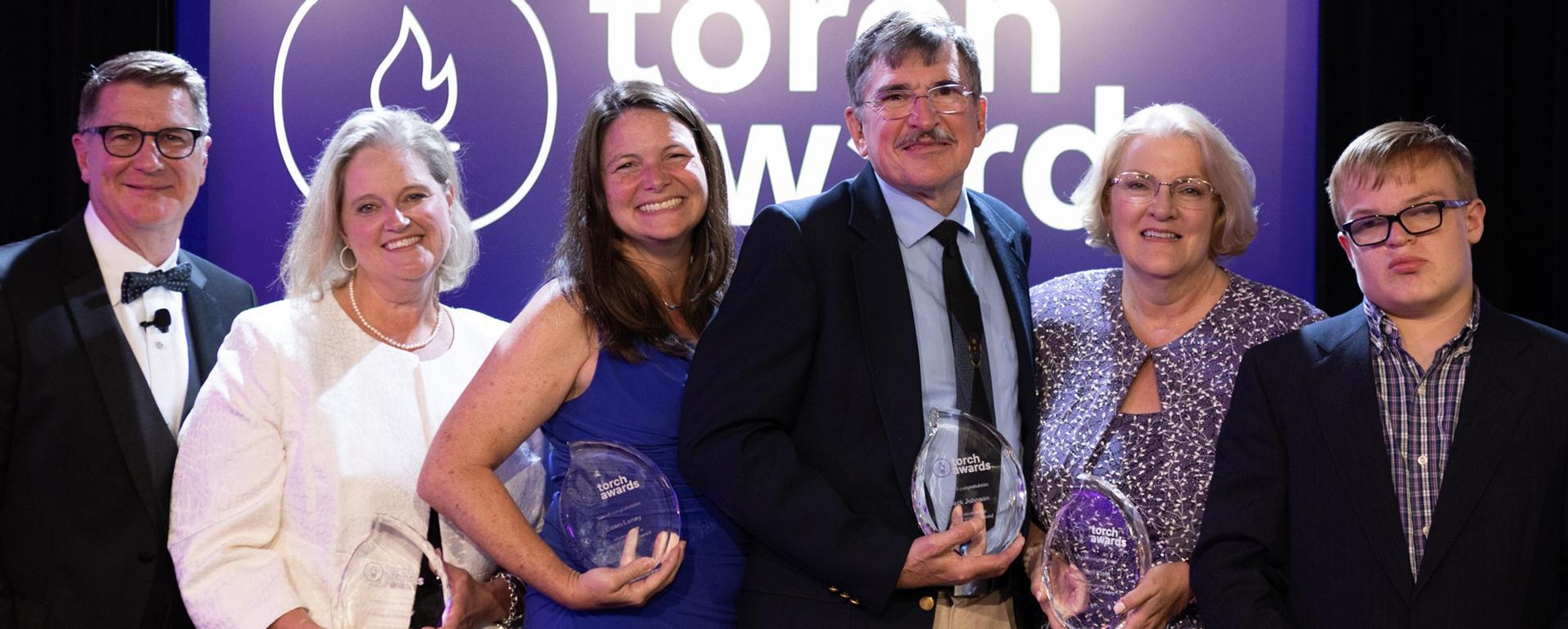
Sanofi’s TORCH Awards, short for “Transforming Outreach in Rare Diseases and Creating Hope,” celebrates its seventh year! The annual TORCH Awards acknowledge the impactful contributions of people living with or touched by rare diseases, who continue to stand strong at the forefront of change in this community. Since its inception in 2017, there have been 32 TORCH Award recipients.
This is a time to recognize and celebrate the recipients, as well as shine a light on critical aspects of patient care, including health equity, diversity, and inclusion. It is an honor to celebrate these advocates, their significant impact, and how they approach education, empowerment, connectivity, and community.
Following a competitive nomination period, Sanofi selects the class of awardees for recognition and provides a $5,000 donation to a non-profit organization of each winner’s choosing. The 2023 honorees exemplify a beacon of hope, shining a light on the advocates who have strived to create positive change in the rare disease community. With the help of these advocate heroes, we will never stop pursuing better care for rare.
We look forward with great anticipation to seeing how these trailblazers continue to advocate and help change the reality for those living with rare conditions each and every day.
Please join us in celebrating them by watching the award show below and reading more about their contributions.
Congratulations to all!
2023 TORCH Award Recipients
Annie Kennedy Chief of Policy, Advocacy, and Patient Engagement, EveryLife Foundation for Rare Diseases
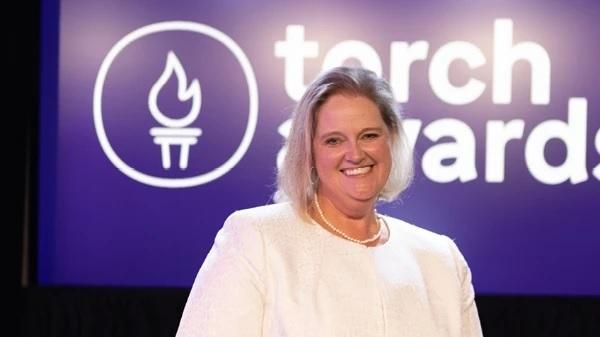
With nearly three decades of serving the rare disease community, Annie has a remarkable ability to turn patient experiences into meaningful action, including legislative solutions and regulatory system changes. During her time with EveryLife, she has led significant efforts to develop the ICD Code Roadmap, the Guide to Patient Involvement in Rare Disease Therapy Development, and the National Economic Burden of Rare Disease Study.
This first-of-its-kind study provides a comprehensive assessment of the public health crisis of rare diseases: digging deep to assess the true economic burden by surveying nearly 1,400 people in the rare disease community, providing hard evidence that can be used to inform policy proposals, increase awareness of rare diseases, and ultimately improve the lives of patients and those who care for them.
Annie’s work is not just data-driven. She shares her experiences broadly, acting as a mentor and coach, and serves on many boards of advocacy organizations also serving the rare disease community, including the NCATS Advisory Council and Cure SMA, as well as numerous steering committees.
Dawn Laney MS, CGC, CCRC Assistant Professor / Genetic Counselor Director of the Emory Genetic Clinical Trial Center LSDC Program
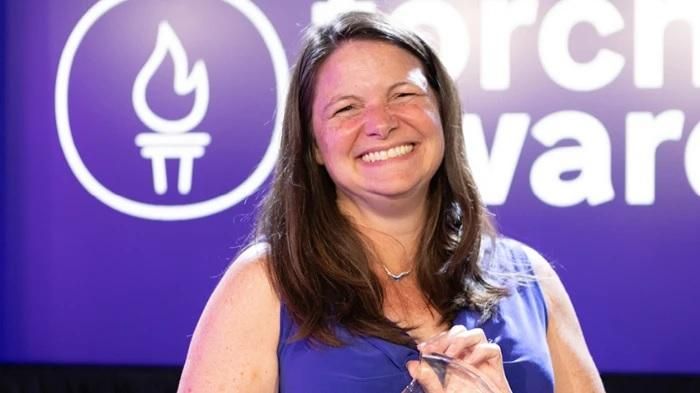
Certified by the American Board of Genetic Counseling, Dawn manages lysosomal storage disease (LSD) clinical research as well as the infusion center at Emory University in Decatur, Georgia. Her intense passion for studying LSDs is rooted in the ardent belief that everyone impacted by rare diseases should receive help to care for and manage their conditions, often connecting patients with appropriate clinical trials that can lead to better disease management.
Her commitment to research is rooted in the psychological impact of living with a rare disease from childhood to adulthood, leading her to facilitate testing for at-risk family members. It also goes beyond the clinic: Dawn has written children’s books, including “Joe Learns About Fabry Disease,” “My Brother, MPS and Me,” and “Danny Goes to Fabry Family Camp,” to help young family members understand the diseases they or their family members are living with.
Jack Johnson Co-founder and Executive Director, Fabry Support & Information Group

Jack’s dedication to the people living with Fabry disease can be described in one word: connector. He works tirelessly to connect people with information, each other, the medical community, researchers, the pharmaceutical industry, and regulatory authorities.
A patient himself, Jack understands first-hand the impact the disease has on patients and families. Having participated in the first-ever clinical trial for a treatment for Fabry disease, he has immersed himself in understanding research, explaining medical reports to fellow community members, and often sharing his knowledge with policymakers both in the U.S. and globally, ultimately connecting Fabry patients with potential clinical trials designed to improve outcomes.
In 1996 Jack co-founded the Fabry Support & Information Group to help support patients and families and provide education and awareness around Fabry disease. Over the past 27 years, the organization has continued to grow, all in the name of connecting people with essential information needed to empower patients to advocate for themselves and their care.
Terri Klein President and CEO, National MPS Society
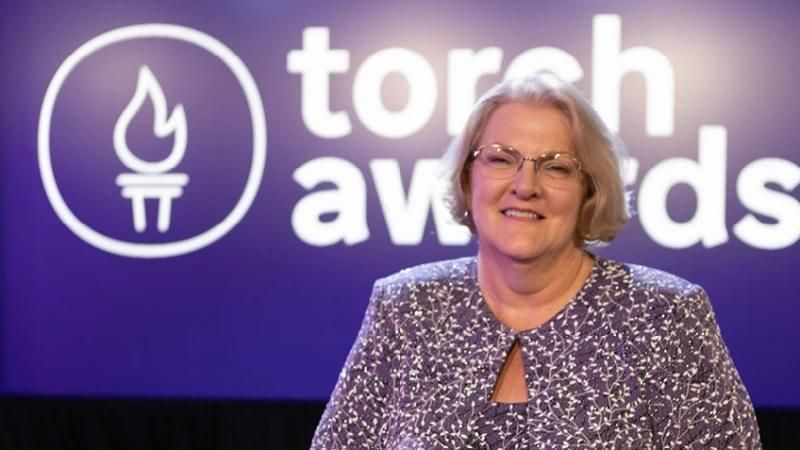
Terri has spent the past two decades as a rare disease advocate, after her youngest daughter was diagnosed with Mucolipidosis III (ML III). Her point of entry into the rare disease community happened when she reached out to the National Mucopolysaccharidosis (MPS) Society for support – an organization she now leads.
Last year the Society worked to host a gathering for families in a local park in Atlanta, GA. This brought participants from all over the state and provided an open forum to share their experiences living with MPS – including lack of transportation to appointments, inability to participate in clinical studies, food insecurity, why their children are not on treatment, and more.
The event was eye-opening to the complicated and profound needs of this community, and Terri knew the Society needed to do more to address these inequities and bridge these gaps. With a focus on diversity, equity, and inclusion, the organization developed new programming to reach underserved communities and provide needed education and resources, as well as an opportunity to connect with patients.
Travis Glock Living with Mucopolysaccharidosis type I (MPS I)
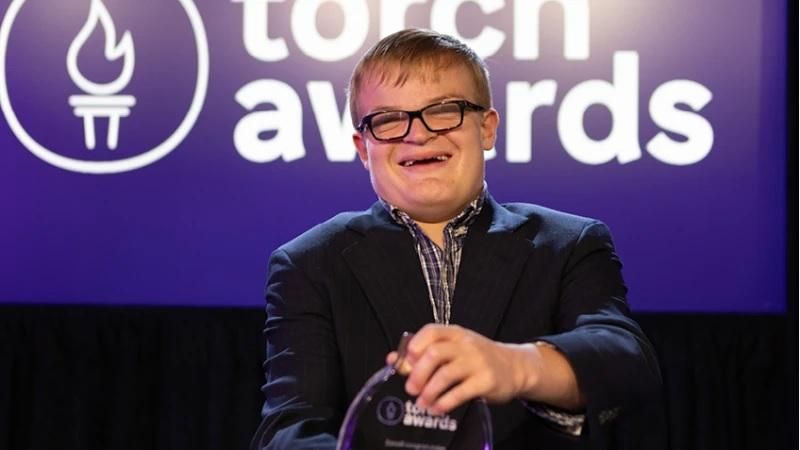
Diagnosed with MPS I at the age of two, Travis, now 14, has been receiving his weekly infusions. Having spent much of his life going through many appointments and procedures, Travis isolated that part of his life from his classmates, not wanting to be viewed as different by the other kids. But this year, Travis stepped outside of his comfort zone and used the opportunity of his year-long 8th-grade project to reveal this part of himself.
Travis exemplifies the makings of a budding patient advocate: seeking to normalize having medical needs but still being a kid. Travis focused on educating his peers about the infusion process and having a port. With assistance from his CareConnect Patient Education Liaison and other members of the MPS community to round out his project, Travis educated students in grades 3-8, along with visiting a local children’s hospital to talk to other kids about having infusions and getting a port, culminating in presenting his research and interviews in front of a packed auditorium.